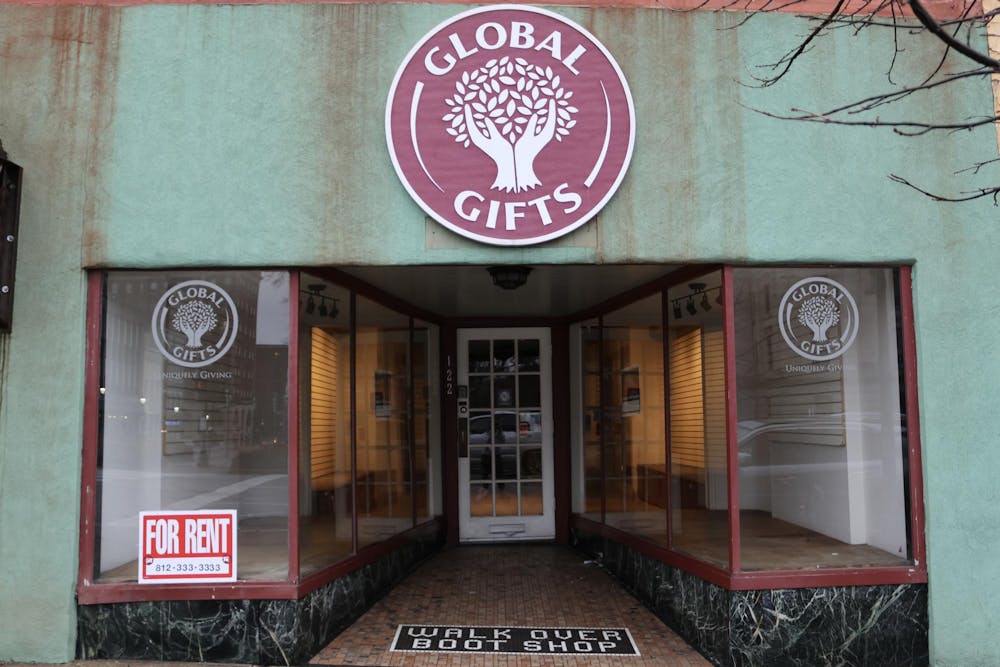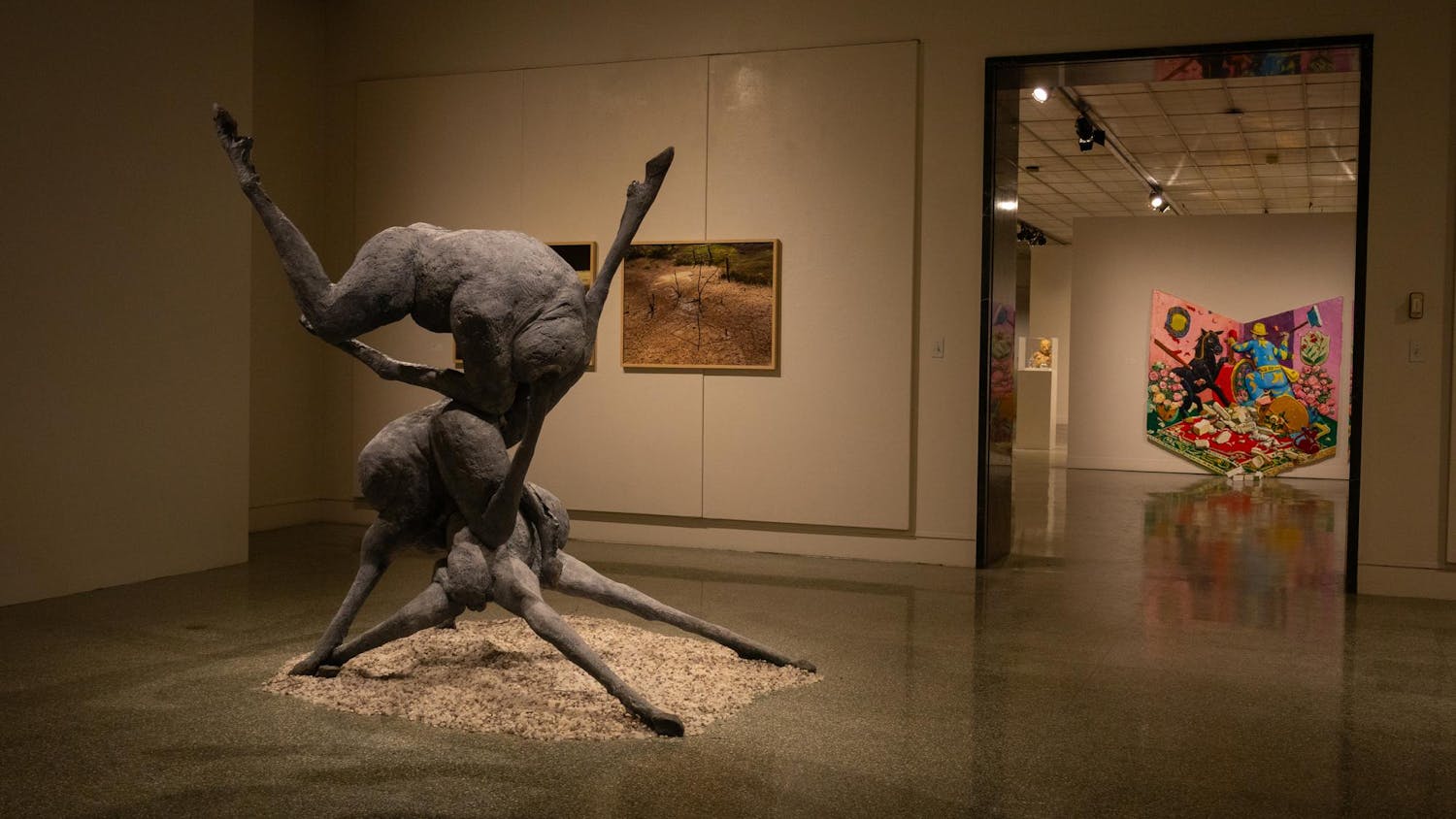A “for rent” sign now hangs in the front window of Global Gifts, casting a shadow over the colorful inventory and fragrant scents that once filled the building. On Dec. 29, 2023, the well-known fair trade shop closed permanently.
Bloomington is classified as one of 47 fair trade towns in the United States by Fair Trade Campaigns. This means that the principles of fair trade — transparency, sustainability and accountability — are imbedded into policy, as well as the community’s social foundations.
Global Gifts opened on Walnut Street in Bloomington in 2009. Until its closure, it was one of three store locations operated by the Global Gifts nonprofit that was founded in Indianapolis in 1982.
The Herald Times spoke with the nonprofit board’s president, who said Bloomington location was closed to put more resources into their Indianapolis locations. However, he mentioned a hope for a pop-up presence at art markets and community events in Bloomington, so as not to desert the town entirely.
In the world of marketing, the idea of “fairness” may seem dodgy or confusing. Some people hear the term “fair trade” and see it as an indicator of an overpriced product, but the meaning of the term comes down to ethical production, transportation and distribution methods of goods, with fair wages for employees involved.
Among the items that one could have purchased at Global Gifts were soup kits, jewelry, candles, clothing and an assortment of seasonings, all of which ensured that their makers would be paid a fair wage.
Fair Trade Certified says on its website that an item with its certification on its packaging meets rigorous social, environmental and economic standards. Such standards include safe working conditions, environmental protection and community development.
Coffee and chocolate, both of which are made with beans that cannot typically be grown in the U.S., are among the products that commonly bear such a certification. Without this certification, growers are not guaranteed to not be exploited for their labor.
It is likely that the cup o’ joe on your breakfast table started out in a South American or a West African Country, like Ecuador or the Ivory Coast. It is not uncommon for coffee and cacao farms to be small-scale and family-operated. Almost half of these producers live in poverty.
In Nicaragua, the world’s 12th-largest coffee producer, it is not uncommon for a farmer to make as little as the equivalent of $6 per day.
Fair trade is most commonly seen in food and beverage products, but the certification can extend into anything from the cotton T-shirt on your back to the artwork on your living room wall.
A pamphlet from Global Gifts lives on the desk in my bedroom. On it are words from Sakku Devi, an appliqué artist in Northwestern India.
“My art is my inheritance,” the pampplet says.
When buying Fair Trade Certified products, we support real people and their livelihoods alongside their age-old traditions and the preservation of their culture. Although Global Gifts no longer has a location in Bloomington, it is our obligation as a fair trade town to uphold its mission and to build the habits of conscious consumers




